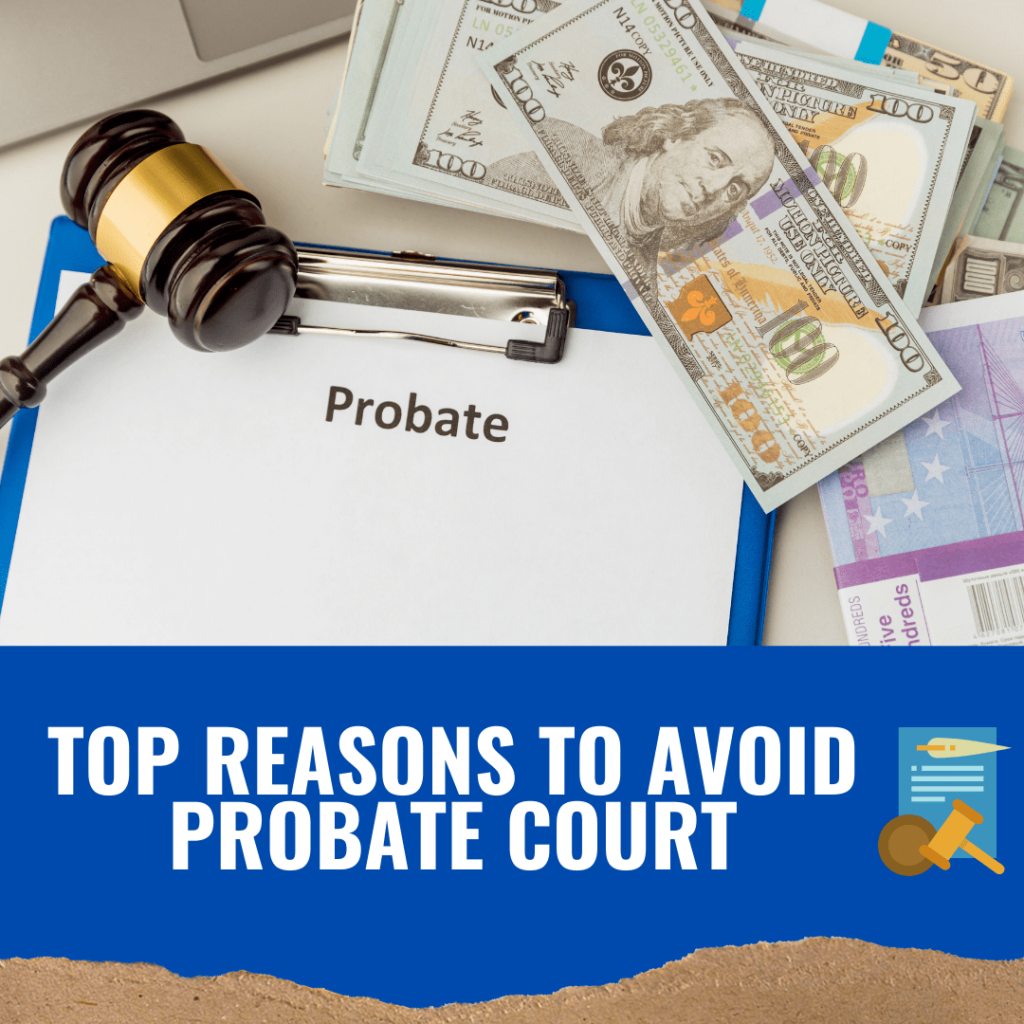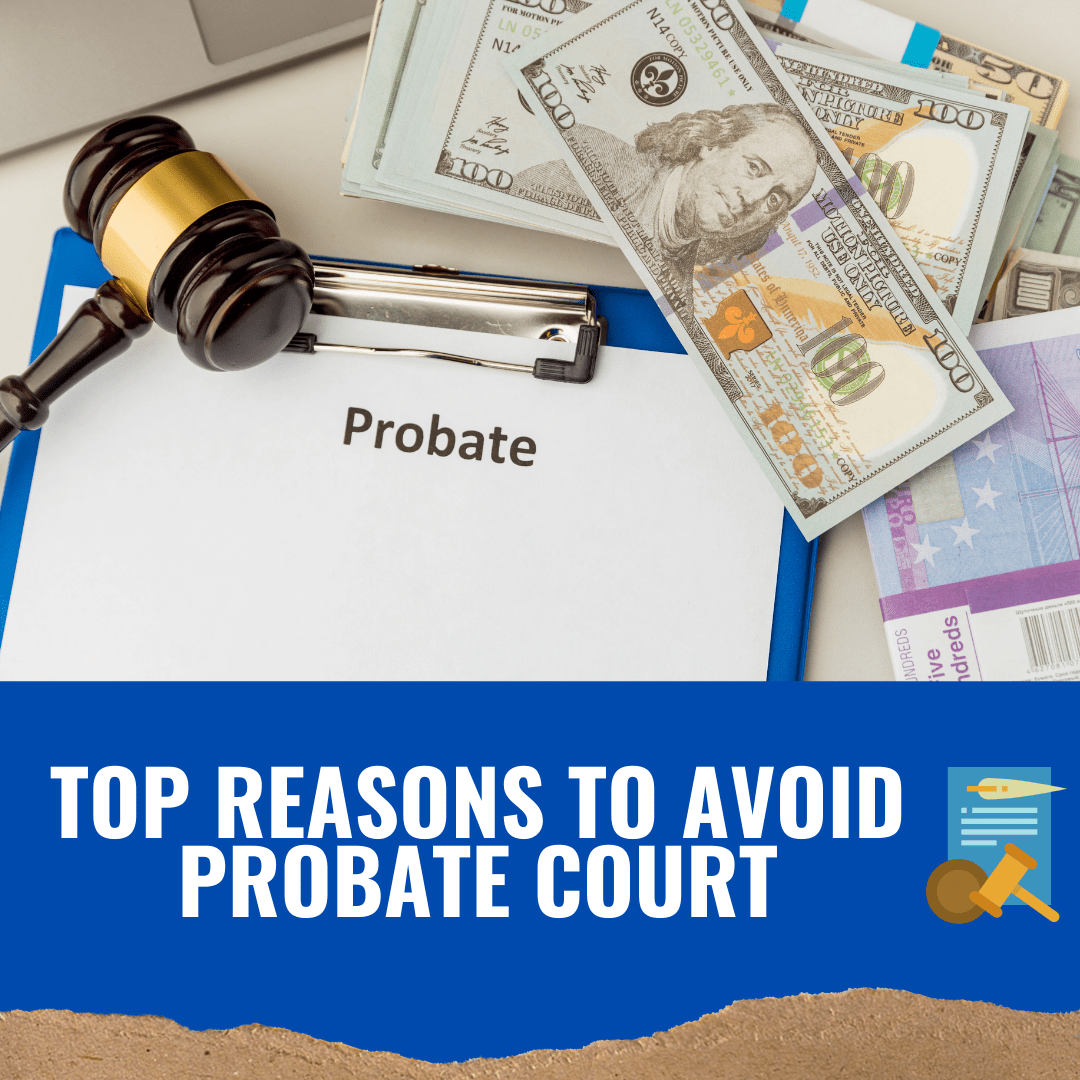
You have probably heard from friends or family about probate and that you should try to avoid it at all costs. What makes probate so bad, and is it essential to avoid it?
What is Probate?
Probate is the court process of resolving an estate upon someone’s death. When someone dies, they usually leave behind some assets, such as property, money, or any items of value) and debts. This legal process involves the court system taking an inventory of these assets, settles the debts, and anything that remains gets distributed amongst the deceased’s heirs.
If the deceased left a will, it would guide the court in deciding who will manage your estate and who gets what. If there’s no will, the court will determine who gets paid or benefits from the estate.
Probate in Massachusetts should get avoided for multiple reasons. Here are our top reason why:
Probate Costs Money
Probate costs vary by state, but they remain costly no matter where you are. The court will take a percentage of the gross estate in probate fees, and in some cases, can be up to 10%.
Money from the estate can get used by the court to conduct court proceedings, such as assigning lawyers to protect minor heirs, appraisals, or performing any other legal duties in the process. Heirs can spend the deceased’s money instead of the state if probate gets avoided.
Probate Can Take Time

Probate can be very time-consuming and can last anything from 6 months to three years. It takes time because the probate courts have to appoint an executor to access the deceased’s bank accounts or transfer a car to another family member. It can take longer than three years if an heir contests the will or if the estate is a complicated one.
You might get stuck paying bills such as funeral expenses, utilities, attorney fees, etc. while waiting for funds throughout this time.
Probate is a Public Record
Probate is a public record as it gets handled by the court system. All filings and information, such as the estate’s debts, assets, and distributions made, get handled by the court and form part of the public record.
Unfortunately, anyone can see who got what, and your financial affairs are no longer private. This type of publicity can also make you a target for scammers or burglars.
Unexpected People Can Make Claims
Unintended heirs can become a problem if the deceased has no valid will. Heirs will get determined via intestate succession laws, and unintended or previously unknown heirs can submit claims against the estate.
Probate can attract relatives such as unknown children or long-lost family members, or even those previously disowned. A prospective heir only needs to prove they’re related to the deceased and not have to prove they had any form of relationship with them.
Probate Difficulties in the Other States
If the deceased person lived in Massachusetts but owned property in another state, the property will need to be probated in the other state, too. This additional probate needs to get repeated in every state where the deceased owned property, which could delay the process longer and cost more.
Probate Challenges

Probate can be challenging and complicated when done on your own. Going solo would result in you having to figure out the complex probate laws. Unfortunate events can occur, such as you not filing an object or document within a certain period. You could unknowingly waive your rights forever.
You will get left to figure out probate processes yourself, and the Massachusetts Probate Courts can’t give out any legal advice. It’s beneficial to have an attorney do everything for you.
How to Avoid Probate in Massachusetts
There are several ways to avoid probate, but the easiest is to create a living trust. A living trust is comparable to a will and places your property and assets into a trust. A trustee will then manage the trust for your beneficiaries’ benefits at the least possible expense. A trust will avoid probate entirely due to all the assets and properties already getting distributed.
Should You Avoid Probate Court?
It’s not compulsory to avoid probate court, so you can go down this route if you want the court’s finality. A creditor in Massachusetts must file any claims against the estate within one year from the date of the deceased’s death or forever be prohibited from doing so. This finality will also apply to any family members or heirs who may want to claim at a later stage.
The main thing is that you remain fully aware of what you and your family are getting themselves into when choosing to go through a probate court. Mourning your loved one is already difficult enough, and you will most likely encounter a lot of stress by not avoiding probate.
Consider getting an estate planning attorney to help you make the right decisions for you. They are knowledgeable enough to review your circumstances and will help you with all your difficult questions.
How We Can Help

If you need to sell your house in probate, call us today for a consultation or to receive a free, no-obligation cash offer at 781-309-7085 or get in touch with us via e-mail.
Our licensed real estate agents can help ease your burdens by selling the house in probate. Our priority is to be sure that you have the advice you need to make the best decision for your situation.
We can sell your house for top dollar or buy your home for cash through our “Fast Cash Offer” option (Learn how we buy houses here..)
If you’re interested in getting a real estate expert to contact you to discuss your options, then be sure to reach out to us!

